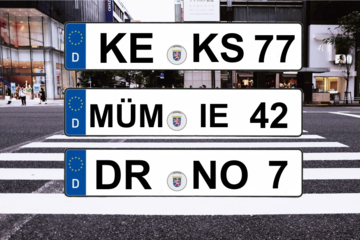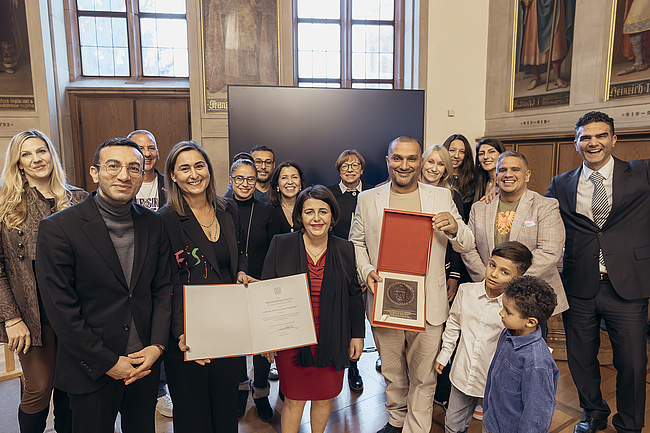Professor Ralf Bochert from Heilbronn has put forward a proposal that could strengthen the local identity of 320 medium-sized cities in Germany - including numerous cities in Hesse. His plan: these cities should be given their own license plates to promote their regional identity and visibility.
For the Offenbach district, for example, Bochert has designed nine new license plate abbreviations, including:
- DIE for Dietzenbach
- DR for Dreieich
- LGN for Langen
- NIS for Neu-Isenburg
- MÜM for Mühlheim am Main
- OBH for Obertshausen
- RÖD for Rödermark
- ROG for Rodgau
- SGS for Seligenstadt
He also has suggestions for the Main-Taunus district, such as:
- BSO for Bad Soden am Taunus
- EBO for Eschborn
- FM for Flörsheim
- HAH for Hattersheim
- HTA for Hofheim am Taunus
- KEK for Kelkheim
Bochert argues that these labels enable the cities to better localize themselves regionally and that the bureaucratic effort would be manageable. An application to the Federal Ministry of Transport and a resolution by the district council would be enough to start the process.
However, the question of whether this proposal will meet with popular approval remains open. In many other European countries, such as France, England and the Netherlands, car license plates are not linked to the place of residence.
Survey on the Zeil
Frankfurt-Tipp asked passers-by on the Zeil:
Max G. from Frankfurt-Zeilsheim thinks the idea is "completely pointless". Instead, he would like to have license plates based on the US model and would name his car "Knight Rider". Sandra M. (32) from Eschborn also sees little benefit in a license plate relating to her home country. "I'd rather have more of a personal reference on my license plate," she says.
Imke L. (67) is not a fan of the idea. She sees no practical advantage to it, as she believes it would place an unnecessary burden on the traffic authorities. She also fears that this variety of new license plates could only lead to more confusion in road traffic.
While Professor Bochert is counting on a strengthening of local identity, it remains unclear whether such license plates will meet with broad acceptance among the population.













